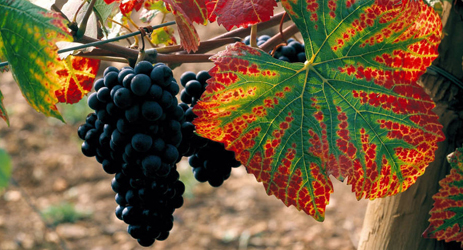[Grape Variety]
The name means ‘acid black’ and it’s a variety that can make wines that are either glorious or tough and tart, depending on the skill of the grape grower and winemaker. Because it is both vigorous and productive, it needs the right site—ideally light, poor, sandy soils—and control on yields. When it succeeds, it can be perfumed, elegant and age worthy—not unlike Nebbiolo or Pinot Noir.

It is Greece’s second most planted red variety (after Agiorgitiko) and the only variety allowed in the Naoussa appellation in north-western Greece. Although this is its traditional homeland, it is giving excellent results further north in Amyndeon, where the vineyards are higher, cooler and windier.
Some producers blend Xinomavro with Syrah and/or Merlot but well-made varietal wines are the most alluring and distinctive. Colour stability can be a problem, with wines becoming pale and bricky, especially with ago, but this does not detract from their potential complexity and red-fruited fragrance. Try the wines from Alpha Estate, Argatia, Boutari, Kir-Yiannis, Thymiopoulos and Tsantali.
Wine Grapes by Jancis Robinson MW, Julia Harding MW and José Vouillamoz; www.winegrapes.org
All rights reserved by Future plc. No part of this publication may be reproduced, distributed or transmitted in any form or by any means without the prior written permission of Decanter.
Only Official Media Partners (see About us) of DecanterChina.com may republish part of the content from the site without prior permission under strict Terms & Conditions. Contact china@decanter.com to learn about how to become an Official Media Partner of DecanterChina.com.




Comments
Submit